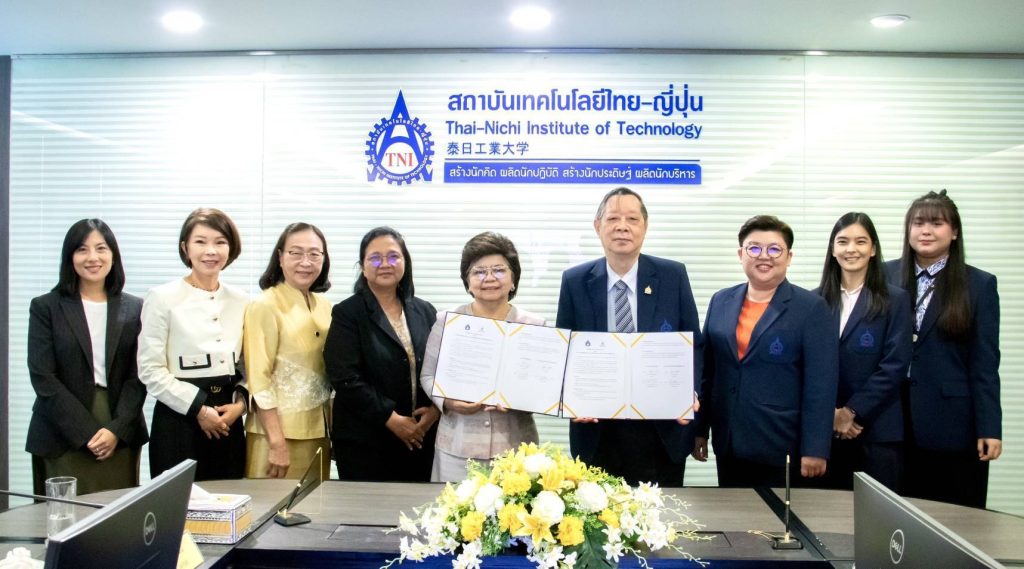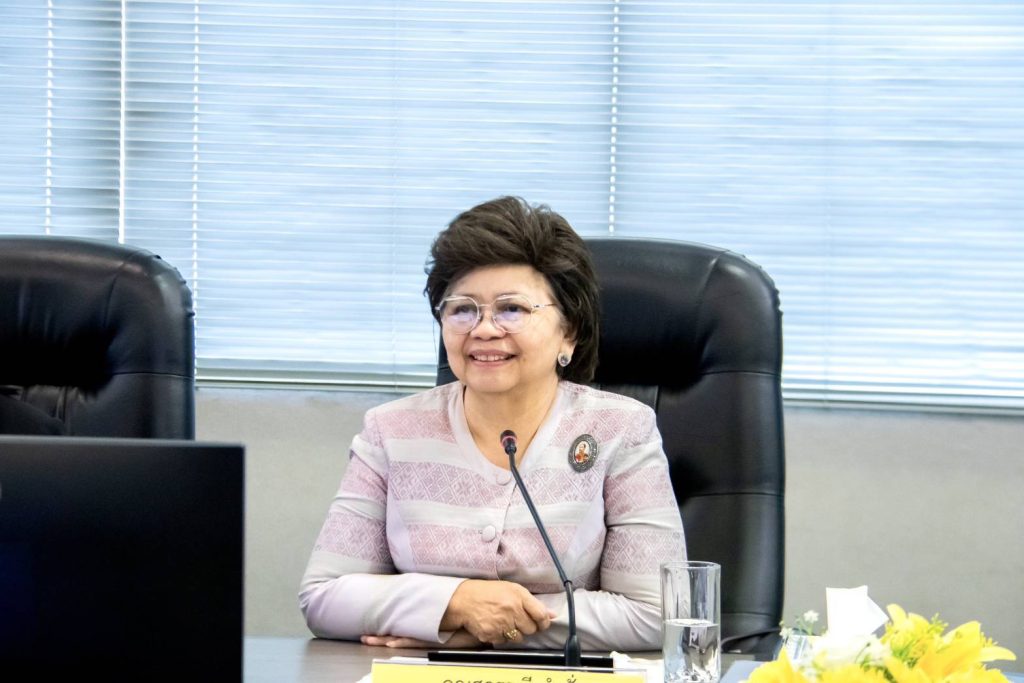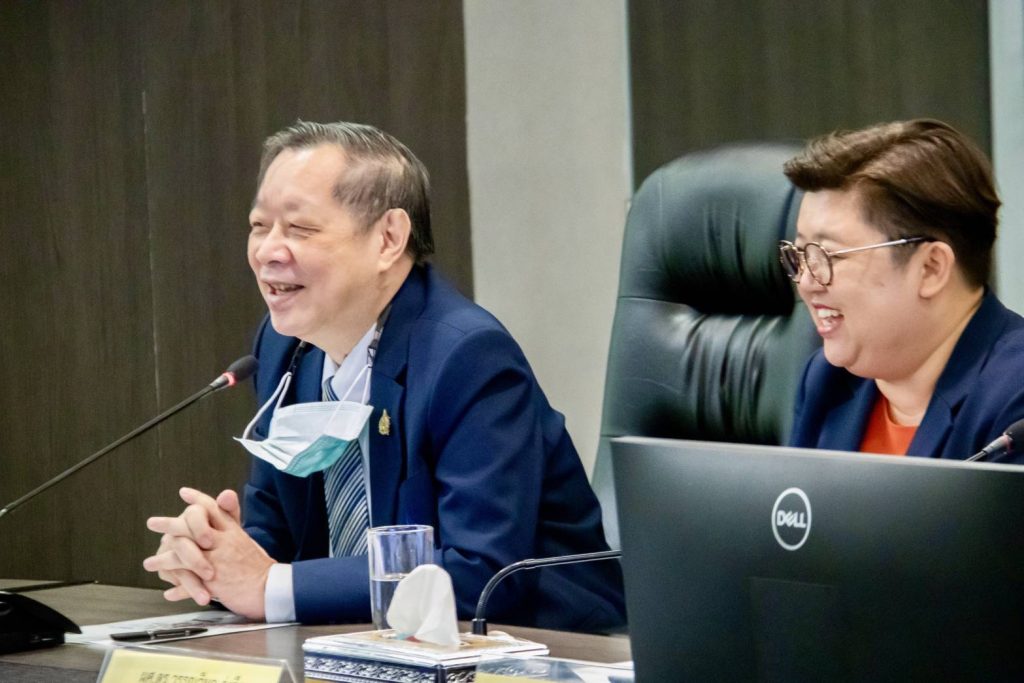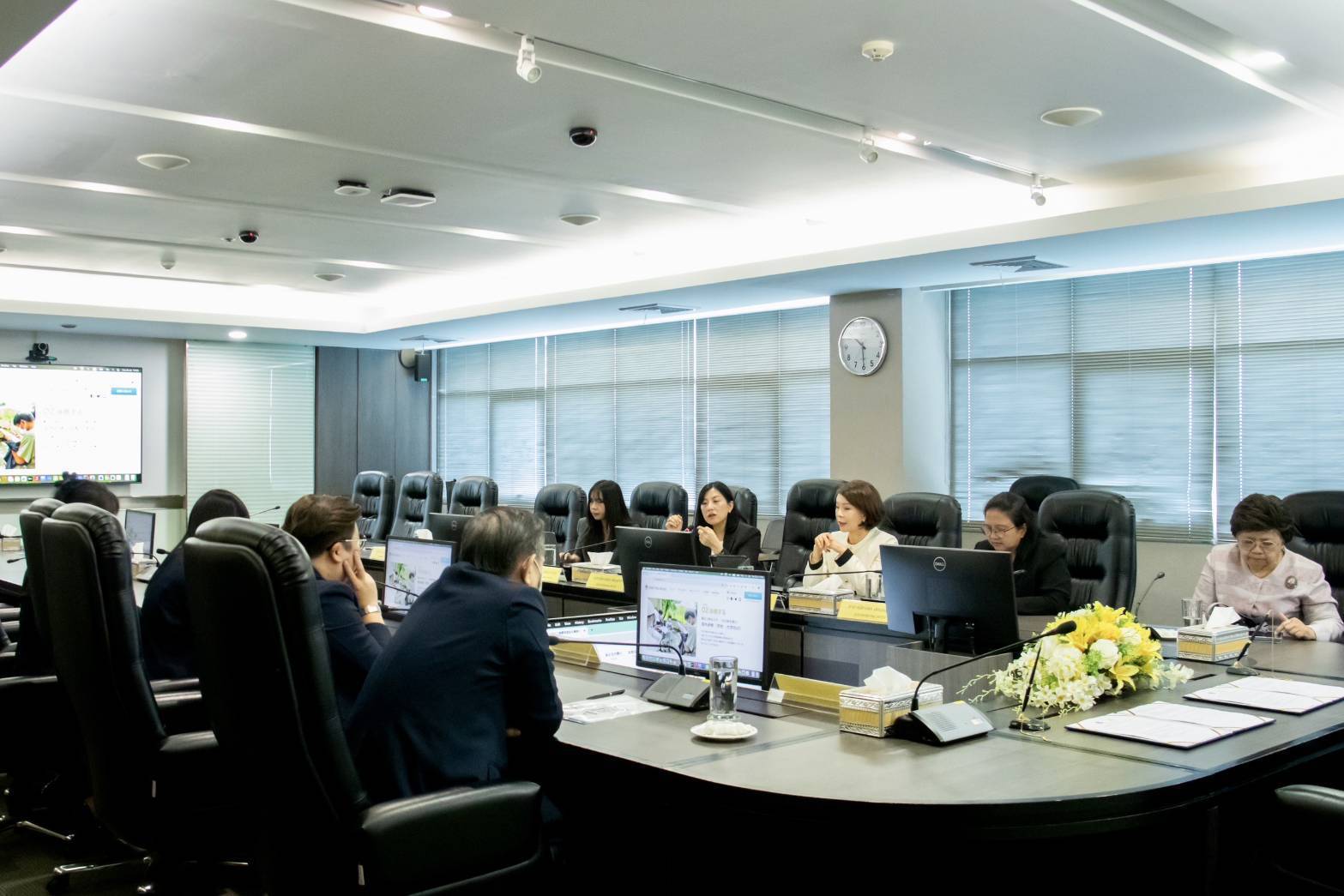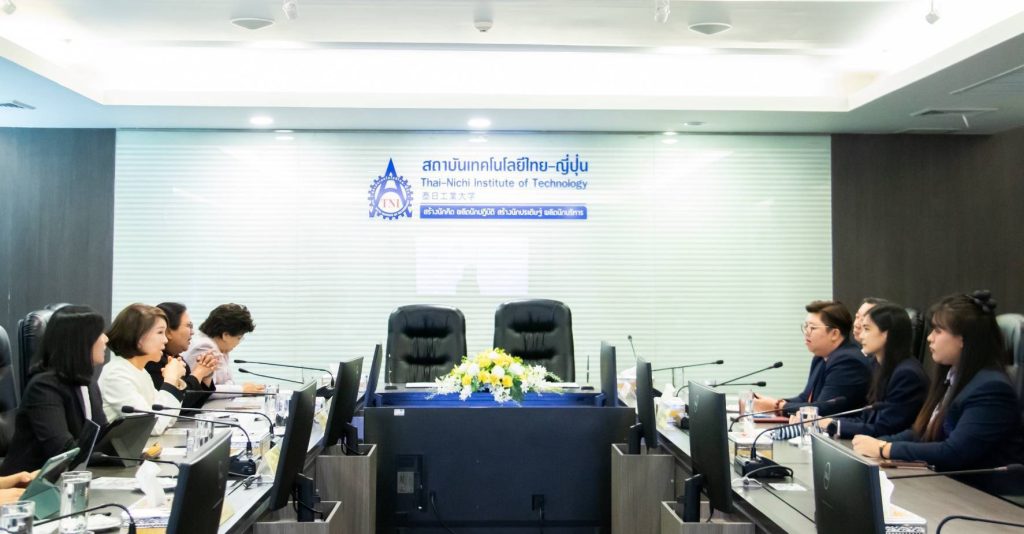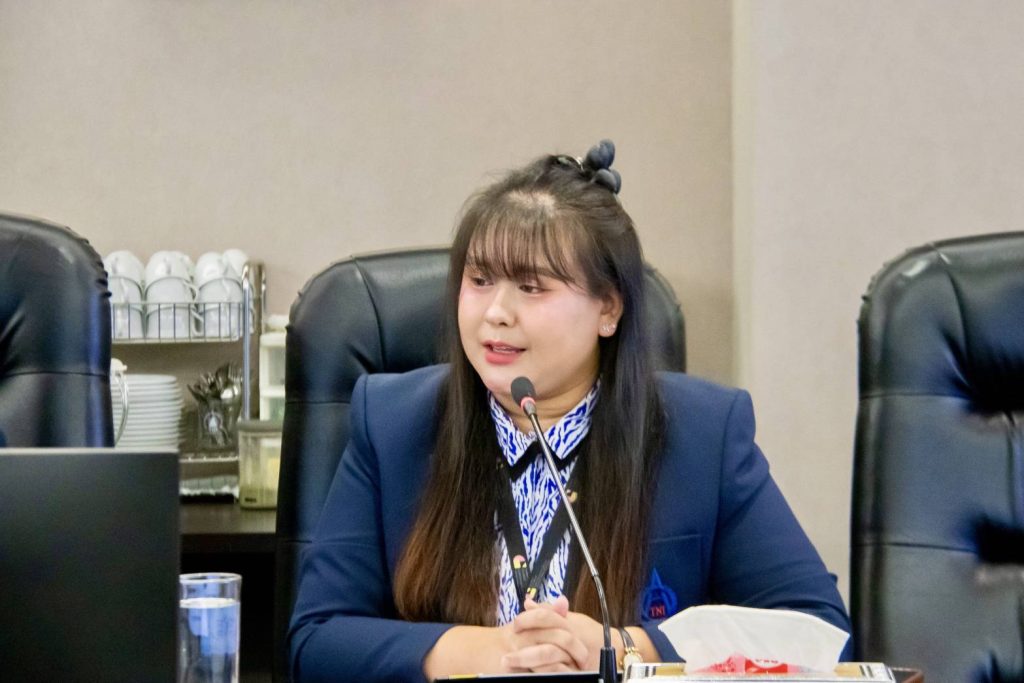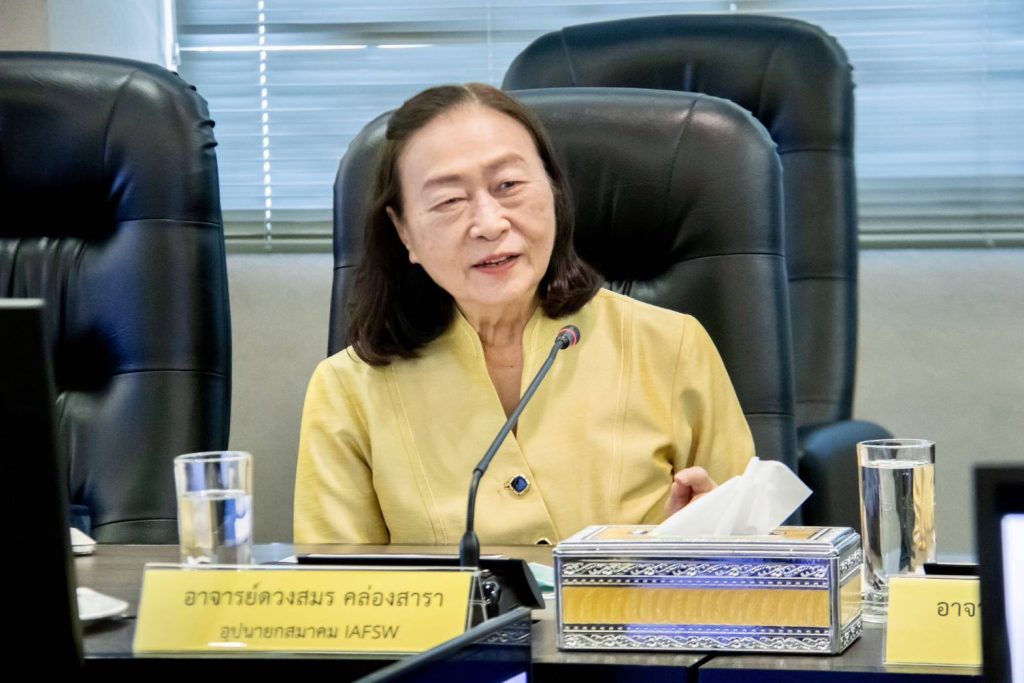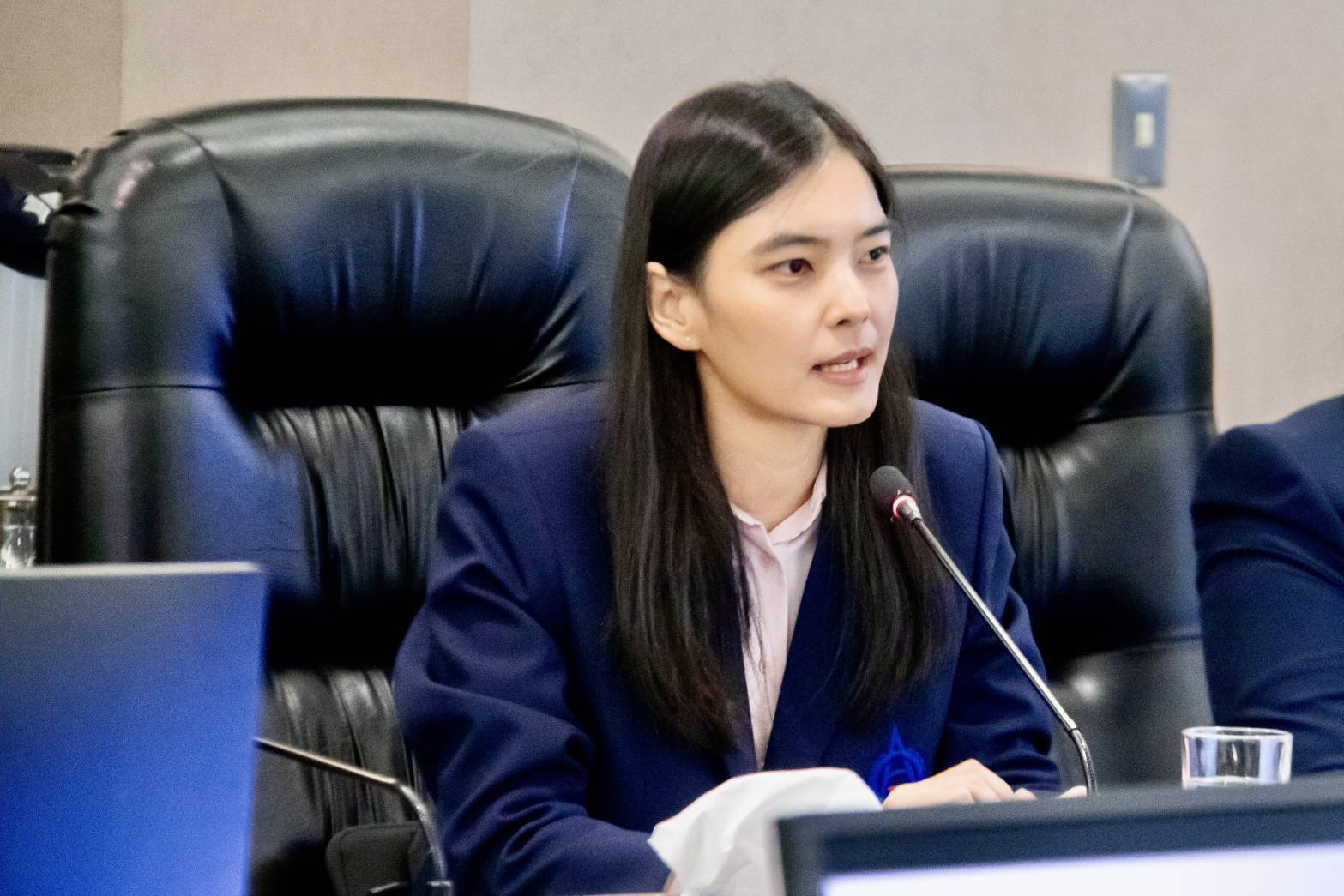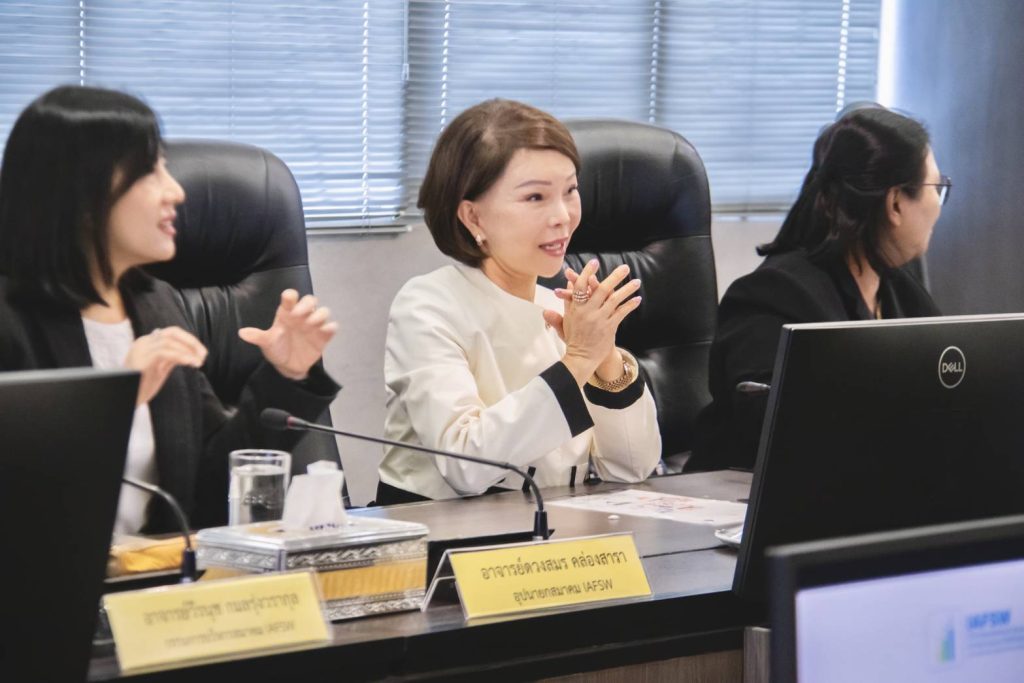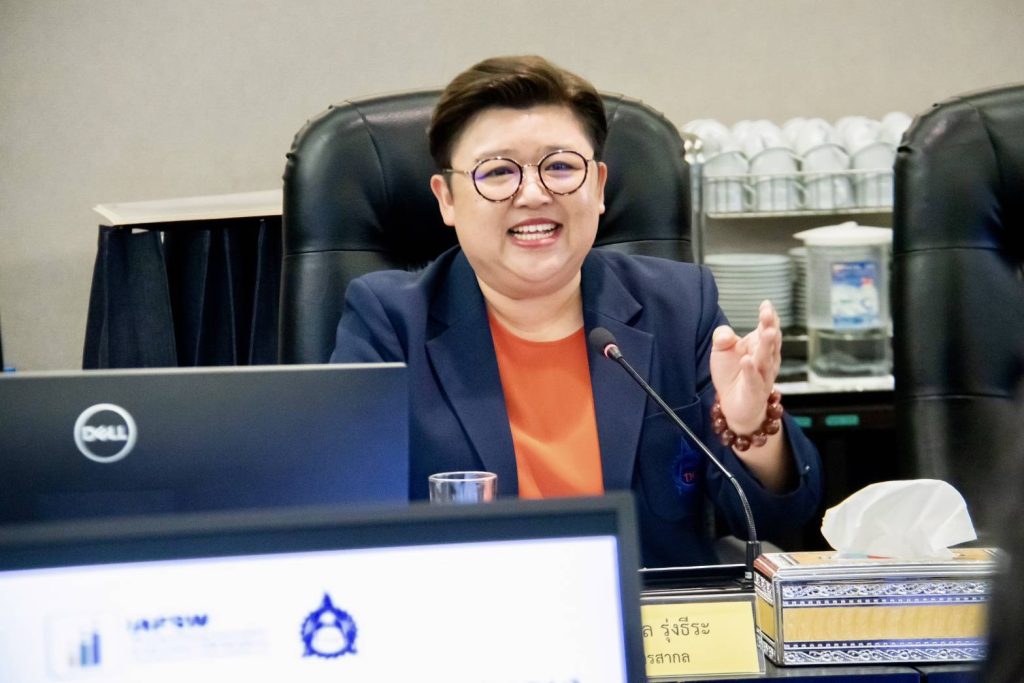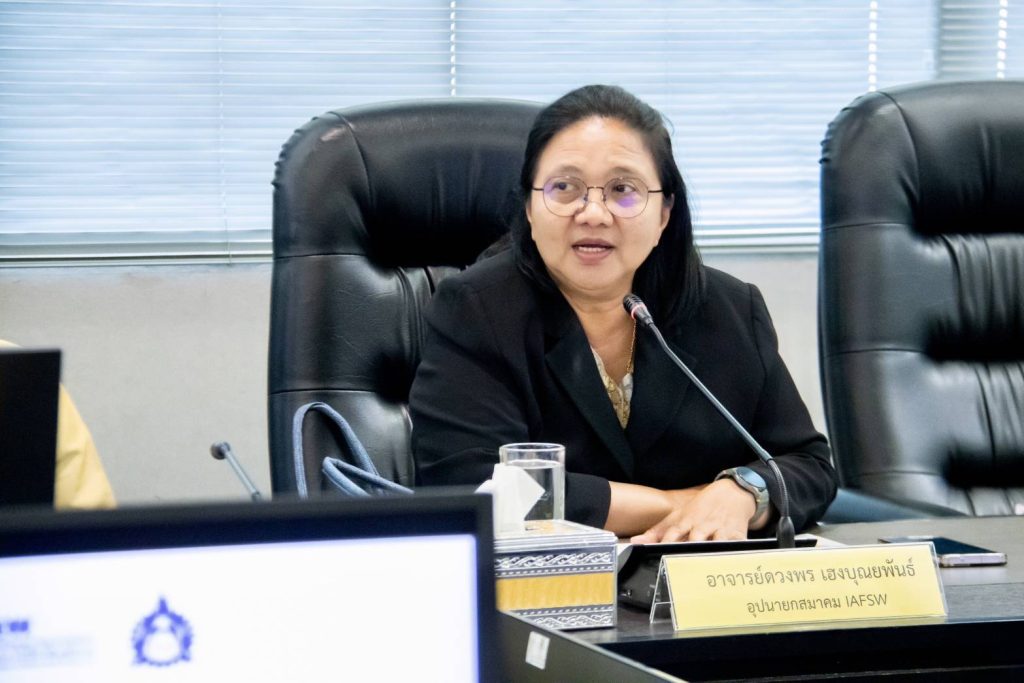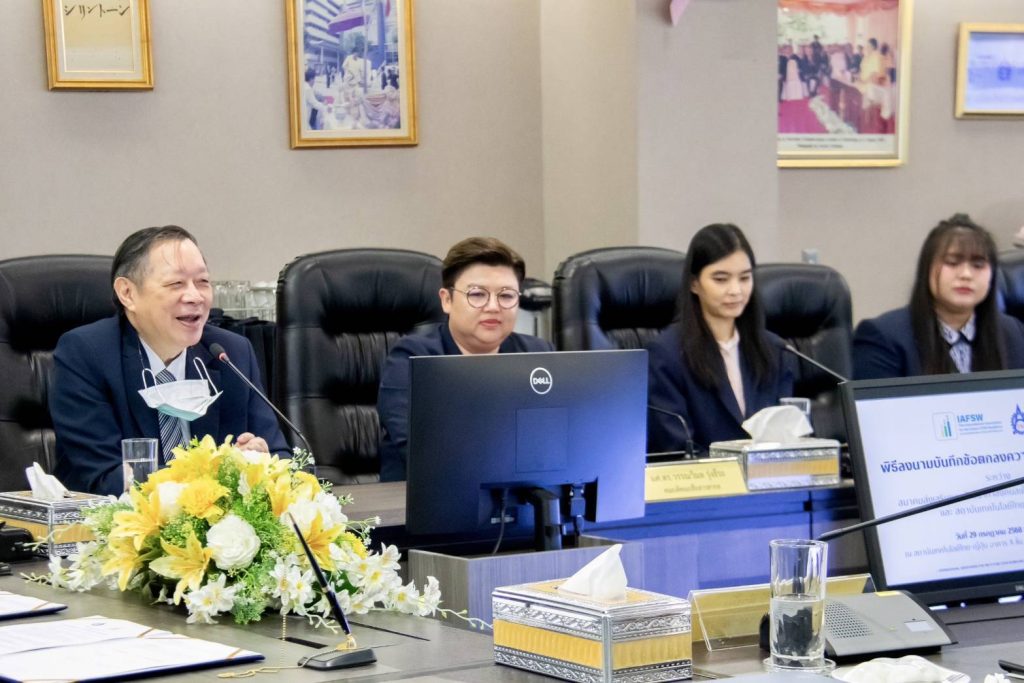Here is the translation of the news article from Thai to English.
Between the International Association for the Future STEM Workforce (IAFSW) and the Thai-Nichi Institute of Technology (TNI)
On July 29, 2025, the International Association for the Future STEM Workforce (IAFSW) and the Thai-Nichi Institute of Technology (TNI) signed an academic cooperation MOU to jointly develop essential curricula and skills, particularly in the Japanese language and professional skills. This collaboration aims to expand educational opportunities, build strength, and foster sustainable development.
Leading the signing were:
- Ms. Suwanee Kamman, President of the Association
- Ajarn Duangsorn Klongsara, Vice President of the Association
- Ms. Duangporn Hengboonyapan, Vice President of the Association
- Ms. Jintana Panrakamanee, Vice President of the Association
- Ms. Weeranuch Kamolrungwarakul, Executive Board Member of the Association
The ceremony was honored by the presence of Associate Professor Rangsan Lertnaissat, President of the Thai-Nichi Institute of Technology, as the ceremony’s chairman. Also in attendance were Assistant Professor Dr. Wannawimon Rungteera, Dean of the Faculty of International Communication, Ajarn Nantiporn Boonsiang, Associate Dean for Academic Services of the Faculty of International Communication, and Ajarn Nattnicha Rojanasirin, Head of the Japanese Language Program (General Education).
The objective of this MOU is to jointly develop and enhance the academic potential of students, as well as learners in the association’s various projects, in Japanese language, professional skills, and other skills necessary for careers in the modern era.
Under this cooperation, both parties will design and develop Japanese language and professional skills curricula, create and utilize an online learning management system (LMS), and exchange knowledge and expert speakers. They will also co-organize training sessions, seminars, and academic activities to elevate educational standards to meet labor market demands and prepare Thai youth to compete on the international stage.
The collaboration also seeks to expand sustainable educational and skill development opportunities to other learner groups in the future. This will be achieved by partnering with businesses, industries, and relevant organizations to build a strong network that will lead to the development of a high-quality national workforce.
Crucially, the partnership with the Thai-Nichi Institute of Technology, which has an extensive network of Japanese entrepreneurs, will open doors to opportunities in the Japanese job market both in Thailand and abroad. This will encourage Thai youth to apply the skills and language they have learned to real-world jobs at international-standard companies.
This cooperation marks another significant step in developing and enhancing the essential knowledge, abilities, and skills, as well as increasing the competitiveness of Thai youth in both domestic and international labor markets.
